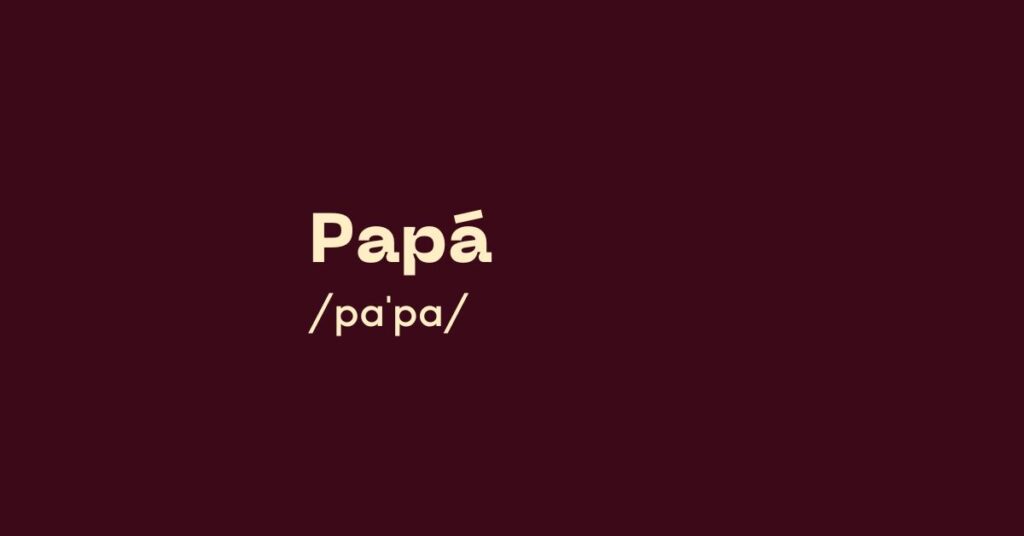Today’s Spanish word of the day is “papá”.
It’s a masculine noun meaning “dad”, or “daddy”.
Like the English word “dad”, “papá” is informal. The more formal way to refer to your father is “padre” (“father”).
The plural, “los papás”, translates as “parents”, so “mis papás” would translate as “my parents” or “my mom and dad” rather than “my dads”.
Papá vs. Papa
Confusingly, the word “papa” (without an accent) also exists in Spanish. This word is pronounced a bit differently, as the stress is on the first syllable rather than the second syllable.
If the word “papa” is captilized (“El Papa”), it means “the Pope”. Otherwise, it means “potato” in Latin America, but not in Spain, where the word for “potato” is “patata”.
Both the word “papá” meaning “dad” and “Papa” meaning “Pope” are thought to come from Latin papa, which itself derived from Greek pápas, which could mean “priest”, “bishop” or “dad”.
The word “papa” meaning “potato” in Latin America comes from Quechua papa, which also means “potato”, so it’s just an etymological accident that the word happens to be pronounced the same as the word for the Pope!
Example sentences
¿Has visto los zapatos de papá?
Have you seen Dad’s shoes?
Papá trajo pan fresco de la panadería para el desayuno.
Dad brought fresh bread from the bakery for breakfast.
Mis papás están en la sala viendo televisión.
My parents are in the living room watching TV.
Papá siempre lee antes de dormir.
Dad always reads before going to sleep.
Le dije a mi papá que necesito ayuda con la tarea.
I told my dad that I need help with my homework.

